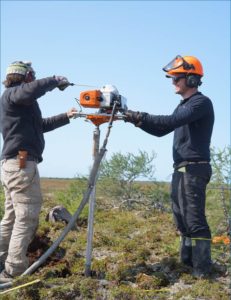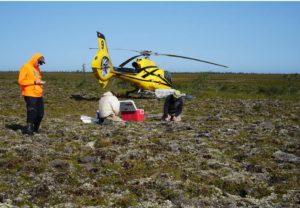Pascale and Adam attended the Up North on Climate Conference in Thunder Bay, April 24 to 26. They presented as part of a panel on peat and permafrost along with Nathan Basiliko from Laurentian University, Maara Packalen, and Jim McLaughlin from OMNRF.
The conference was a concluding event to the work conducted by David Pearson and his team in collaboration with MIRARCO‘s Climate Change Division and northern Ontario communities to improve preparedness for the consequences of a changing climate. The conference was well attended, with representatives from more than 50 northern Ontario First Nation communities (out of 88 communities in the north of Ontario), as well as members of provincial and territorial governments and university-based researchers.

Elders panel at Up North on Climate Conference in Thunder Bay, April 2018. From left to right: Josephine BigGeorge, Mike Hunter, Bellamie Bighead (translator), Joel Bighead, Wilfred Wesley, and David Pearson.


